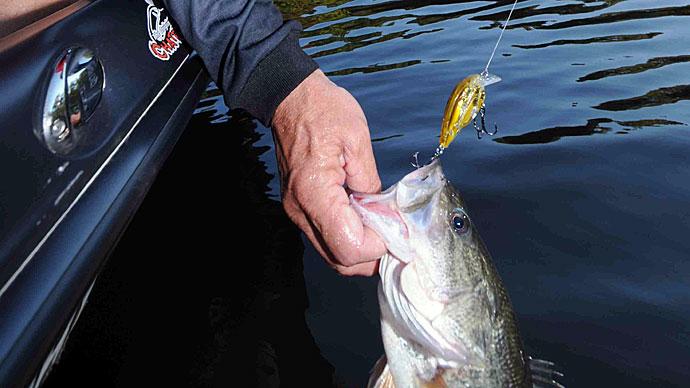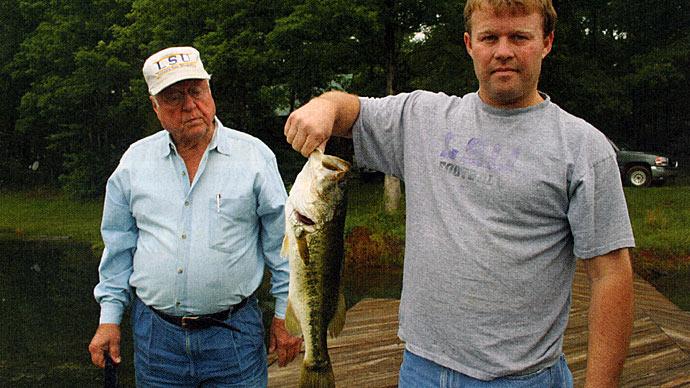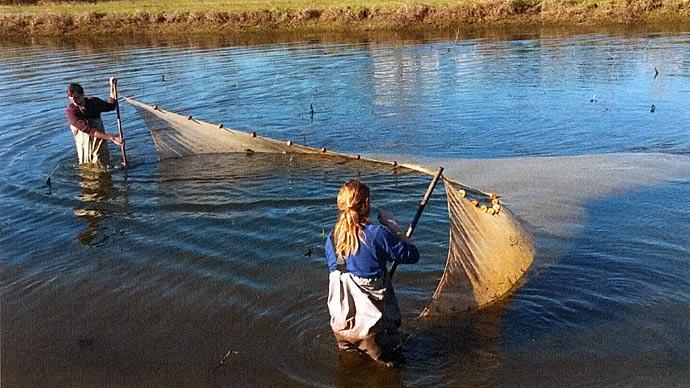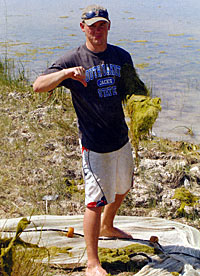
When Pond Boss was still in the conceptual stage way back in 1991, founder Mark McDonald and I had already come to several conclusions. We knew this little magazine would never help attain peace in the Middle East, nor would it offer much toward solving world hunger. So, we decided to make it informative and fun. If readers could glean a few good nuggets of information from each issue and get a chuckle, we would accomplish the mission. Significance wasn't at the forefront of either of our minds. We just thought Pond Boss could help people become better stewards of their land and water.
While we do work hard at the stewardship concept, our thinking about significance is changing.
There are some significant things happening.
As Pond Boss has grown and matured, several interesting things have happened. The website, www.pondboss.com was born. Inside the website, the discussion forum took on a life of its own. People on the forum became friends and helped each other with pond questions and issues. Relationships were formed and then cemented with the advent of the Pond Boss Conference and regional meetings. A family was formed.
Pond Boss forum moderator, Eric West, a natural resources attorney from Jackson, Mississippi started talking with Dr. David Willis, then a fisheries professor at South Dakota State University, now the department head. Eric's idea was to start a scholarship endowment in honor of his father, Jesse W. West. That endowment was developed to assist fisheries students with their education and to help fund practical fisheries research.
So far, Pond Boss people have contributed more than $50,000 to begin building the endowment and that effort is showing some fruit.
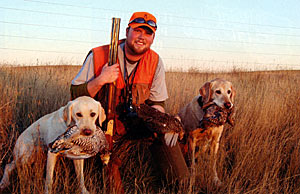
Meet Nick Peterson, for example. The Jesse W. West Endowment funded a research project where Nick was able to study first year growth and survival of largemouth bass fingerlings in western South Dakota ponds. While that doesn't sound like a big deal to many people, it's what happened afterwards that stands to become significant. Nick presented a poster of his project at Pond Boss III Conference and Expo at Big Cedar Lodge. Here's where it gets more fun. Dr. Willis (who captains the ship we call the Jesse W. West endowment) and Eric West sat down with Nick at the conference and talked about what Nick wanted to do next. They mentioned a project Dr. J. Wesley Neal is working on in Mississippi. Dr. Neal met Nick and started talking with him. Before long, Dr. Neal offered Nick a slot to work on a post-graduate degree, studying the genetics of largemouth bass. Nick, a farm boy from Iowa, headed to Mississippi State University. This is a wonderful example of the personal relationships inside Pond Boss and how they work.
Nick called me last September, asking if I had any resources to find lakes with pure strain Florida largemouth bass. Absolutely! What's the mission?
That's when the significance hit me. Part of Nick's research is to determine the genetic diversity of Florida strain bass in isolated impoundments. Here's why that's significant. Genetic diversity is what gives a species a chance for long term survival. Imagine a species of animal where each animal in the population has the same basic genetic markers. One intrusion can decimate the entire population. It's happened in a number of species of animals, such as the Florida panther. It's happened with some lion populations in Africa. Lack of genetic diversity can be a problem which can assist in extinction of a species.
For Nick's research, learning about the genetic diversity of a population of bass can be a project that could have an impact on the human race. It will surely assist the way we manage a fishery. Nick just came back from Puerto Rico, where he collected genetic samples of fish from an isolated reservoir that's had Florida bass in it for decades with no intrusion from other bass species. If he finds out that population of fish is thriving and showing no effects of inbreeding and the genetic markers show diversity, we can also assume our populations of fish have the ability to maintain diversity while maintaining genetic integrity.
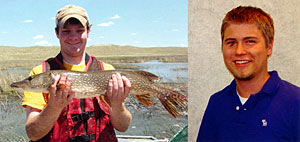
Here's how that affects you and I. When someone tells me they want Florida bass, they are really telling me they want to grow some huge fish. My typical advice is to stock half Florida's and half native strains of bass into a newly stocked pond. Then, stock more Florida bass every third or fourth year to maintain the genetic integrity of the fishery. That may be good advice, it may not. Nick's research will help open the door of truth about what really happens.
Here's where the significance grows. Studying the genetic diversity of any species helps scientists understand what happens within the populations of those species. It helps to understand things such as diseases or immunity. It helps people gain a better understanding of the role of genetics in the dynamics of communities of different species.
And, this research project came about because of what people within the Pond Boss community have done to make it possible. That's significant in its own right.
So, all you good folks who have contributed to the Jesse W. West Endowment...take a bow and accept this big round of applause. There are some wonderful things happening with it...and more surely to come.
If you wish to contribute to the endowment, drop a note to Eric West at ewest@mnwlaw.com or Dr. David Willis at david.willis@ sdstate.edu
Reprinted with permission from Pond Boss Magazine

